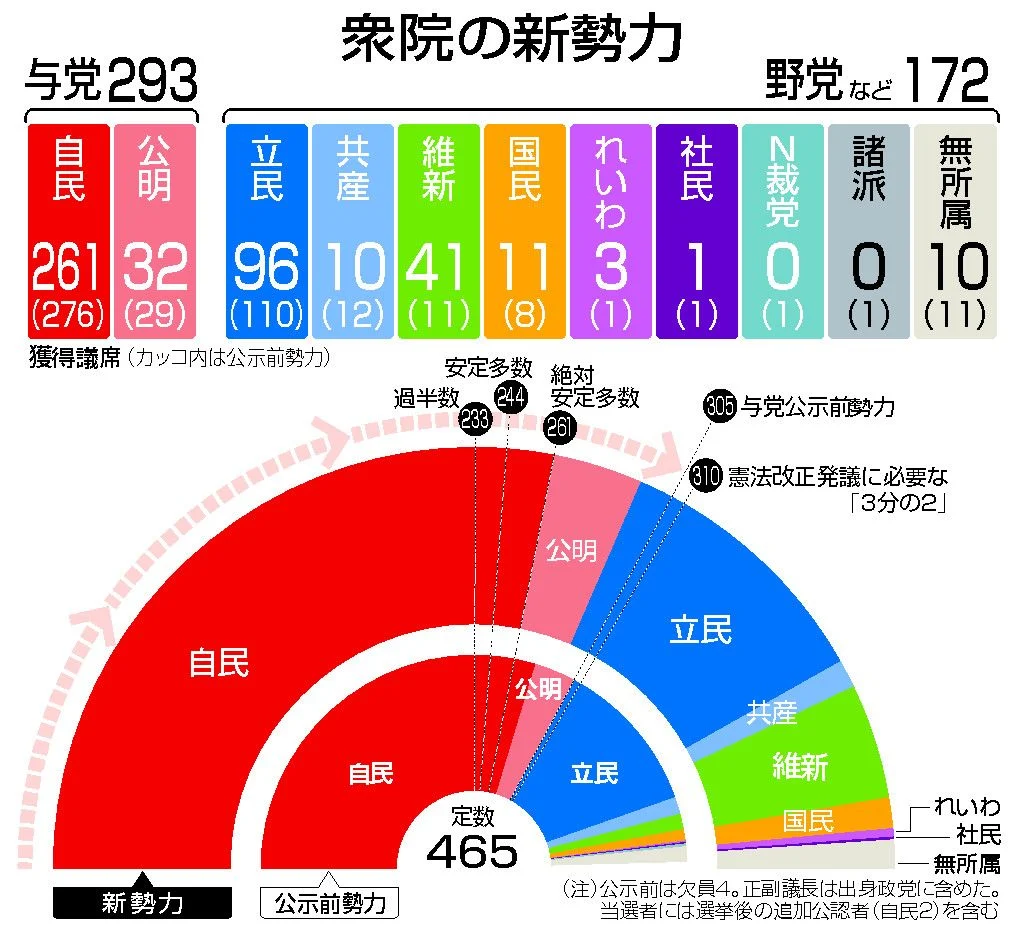This general election was an “election without a winner.” The ruling party maintained an absolutely stable majority with 293 seats, but Secretary General Amari has indicated his intention to resign as secretary general after losing the election (proportional revival) in the single-seat constituency. The appointment of Prime Minister Kishida, who appointed Mr. Amari, who has not been dispelled of monetary suspicions in the presidential election award, was a failure.
It is said that Mr. Takaichi, the chairman of the government, will succeed him, but this is initially said to be the personnel affairs requested by former Prime Minister Abe, and Mr. Abe’s “cloister rule” will be strengthened. Even in economic policy, the influence of Mr. Amari, who was a pro-nuclear power plant, will weaken, and the centripetal force of Prime Minister Kishida will decline.
If anything, the only winner is Ishin, who has almost quadrupled to 41 seats and made a leap to the third party, which surpasses the Komeito party, but 25 of them are in Kinki, and the Osaka local color still remains. Matsui does not intend to run for the next election, so the party will need to be renewed.
“Lose alone” of the Ritsumin
The loser of this election is the Constitutional Democratic Party, which has reduced the number of seats to 96 in partnership with the Communist Party. Deputy Representative Tsuji was defeated, and Representative Edano also lost by himself. It seems that the negative influence of the Communist Party was stronger than the effect of unifying the candidates.
Originally, the Constitutional Democratic Party is a party that gathered people who were excluded when Governor Koike of Tokyo launched the Party of Hope in 2017, and is a rehabilitation of the Socialist Party of the 1955 system. He has no intention of taking power from the beginning and can only fill the Diet by pursuing scandals.
Most voters don’t know what the policy is, so they give the impression that they are “dirty parties” such as Moritomo and Kakei, and make the Liberal Democratic Party disgusted and pursue it persistently. Since the media cannot get the audience rating by policy, only scandals are reported.
The unorganized opposition was the only winner, and the Constitutional Democratic marketing was reasonably smart (like the old Socialist Party), but it was information-vulnerable marketing on the premise that voters did not have the ability to make policy choices. And its expiration date has expired.
The end of the “long 1955 system”
In order to overcome that limit, the opposition party, which can oppose the Liberal Democratic Party by policy, should be rebuilt, but the Democratic Party for the People who aimed at that direction failed.
On the contrary, Mr. Edano switched to the popular front system with the Communist Party, but historically there has been no successful trial of the popular front. This is because the Communist Party, which is superior to religious cohesion, eats half-hearted Social Democrats. This time is no exception.
The era of the Mannen opposition is over. After the collapse of the LDP administration in 1993, Ichiro Ozawa, who tried to rebuild it, failed, and the long 1955 system that had returned to the old days is about to end. It is symbolic that Mr. Ozawa lost the election (proportional revival) in the single-seat constituency for the first time this time.
Mr. Edano should resign and liquidate the perennial opposition without policy, and create a new constructive opposition including the Democratic Party for the People, centered on the restoration. How about welcoming Mr. Toru Hashimoto as the party leader?









Comments